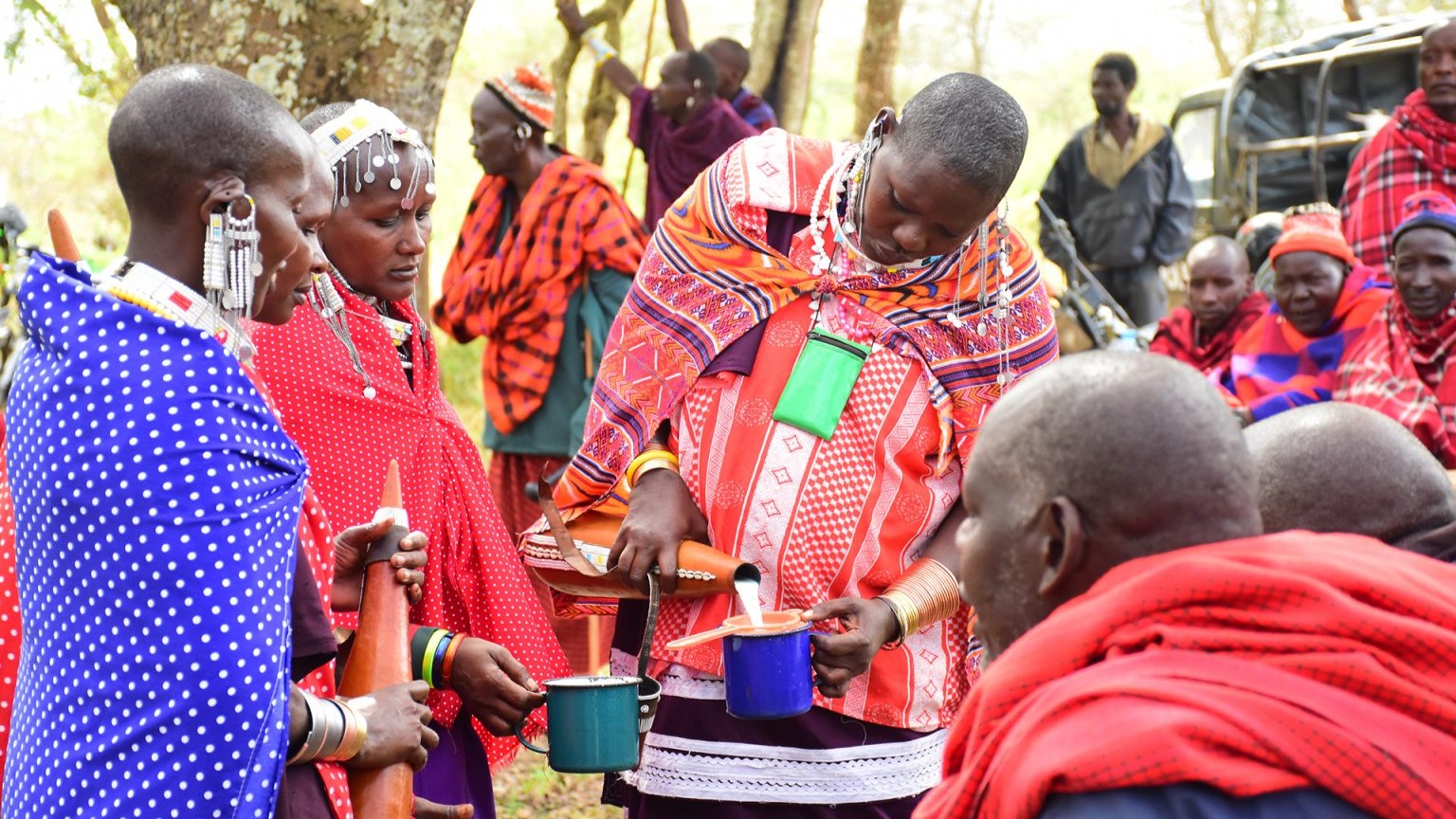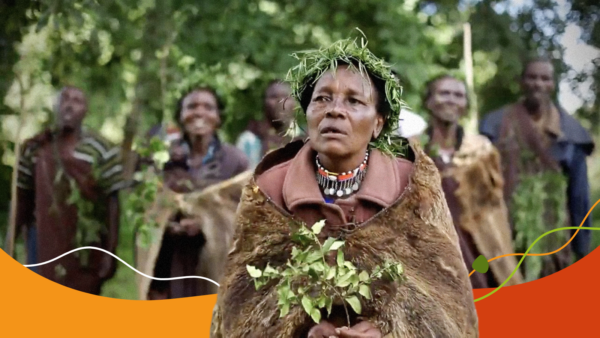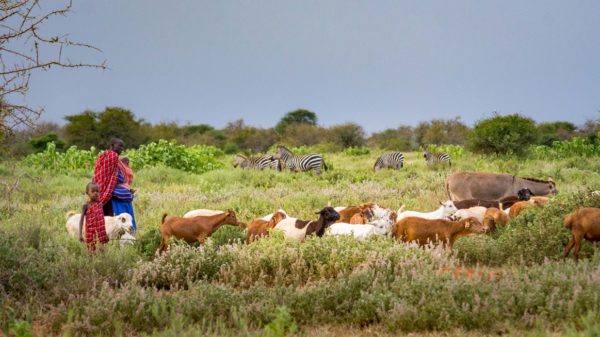Displacement and evictions have affected pastoralists’ mental health and well-being, thus creating a state of learned helplessness and depression
First published on 10/15/2024, and last updated on 02/27/2025
Pastoral communities in East Africa have both endured challenges and maintained strides. For centuries, we have depended on our territories and livestock as our economic and social backbone.
Communities such as the Maasai are known for long-held embedded traditions, which they have continued to embrace. They practiced transhumance systems long before colonialism and after the independence of nation-states.
However, pastoralist communities have long been forced to settle in “modernized” or politically designed boundaries to tame and cage them as governments continue to view them as a nuisance to conservation and modernity.
Here, I’d like to discuss three main challenges pastoralists face, notably in recent times.
Few communities, such as pastoralists, saw climate change coming even before the national governments started to talk about it. Climate change is now a household topic among pastoralists, who are hit hard by its realities.
In East Africa, for instance, an array of effects resulting from climate change have been felt, leaving these communities more vulnerable and susceptible to even more devastating setbacks.
Such effects include shrinking and losing grazing rangelands, increasing bare lands and deforestation for farmland expansions, intertribal and clan conflicts due to land shortages, and overpopulation-escalating conflicts as resources such as water and grazing land become scarce.
Climate change has also exacerbated the increase of waterborne and zoonotic diseases, such as foot and mouth diseases for sheep, goats, and cattle. At the same time, people suffer breakouts of typhoid and cholera.
Following prolonged heavy rains this year, most parts of East Africa have recently experienced numerous landslides, dam breaks, and the washing away of crops, homes, and property. Tourists got stranded and lost many lives in flooded rivers and streams unusually filled during the rainy season. This phenomenon has proved to be a major indicator of climate change and has struck pastoralist communities hard. The fear of unprecedented droughts and famine is even more evident and worrying.
Although heavy rains are always a blessing to cattle keepers such as the Maasai, the Datoga, Sukuma, and others, the destruction of markets and price fluctuation due to weak livestock health is another battle they must win. This causes them to incur significant expenditures regarding veterinary drugs and salt to deworm, keep warm, and treat their animals.
The World Health Organization recently announced mental health as an essential parameter in human development. Pastoral communities are neither immune to mental health challenges nor far from its effects.
Displacement and evictions occurring in many parts of East Africa, whether due to unfavorable policies mostly tilted towards the creation of fortress conservation areas or by natural calamities, have affected pastoralists’ mental health and well-being thus creating a state of learned helplessness and depression due to loss of their livestock to state operations or droughts and famine, suicide, panic attacks, phobias and an array of anxieties associated with evictions and property loss.
Such effects have resulted in gender-based violence and disintegrated families. Men have been victims of uncontrolled alcoholism.
Most state apparatus in East Africa, in a bid to create more investments and non-friendly models incompatible with pastoralist ways of life, infringe human rights, leading to loss of lives and land appropriation, thereby leaving pastoralists in a state of abject poverty, ultimately affecting their general well-being and human rights.
Incarceration and displacement of pastoralists from their ancestral lands and culture loss due to the forceful adoption of the modern style of life incompatible with the Indigenous way of life, including the adoption of agriculture, which calls for the clearance of massive land for farming. This practice further shrinks grazing land and exacerbates conflicts between farmers and pastoralists.
Recommendations
- Strengthen advocacy for friendly policies that accommodate the coexistence of wildlife and pastoralists. Healthy intersectoral linkages are needed to develop frameworks that favor pastoralists and their way of life.
- Increase documentation of traditional knowledge and territories of life of the pastoralists.
- Develop social infrastructures, including mental health, to help pastoral and other Indigenous communities cope with stressors during challenging times and situations.
- Mobilize and raise funds for legal aid for environmental human rights defenders in legal proceedings related to land conflicts.
- Develop, adopt, and promote land tenure models that support and sustain territories of life of Indigenous Peoples.
- Strengthen the practice of good agroecological practices to reduce land degradation.
- Adopt livestock breeds that are resistant to drought.
About the author
Paul Saing’eu is a Maasai pastoralist from Ngorongoro District in northern Tanzania. He is a co-founder of Wings of Mercy Psychological Support Organization (WMPSO) and a leader in advancing human rights and land rights and defending the territories of life of Indigenous Peoples and local communities. WMPSO collaborates with environmental and social justice organizations like Ujamaa Community Resource Team (UCRT). Paul is the Regional Coordinator for East Africa and the Horn of Africa at the ICCA Consortium’s Secretariat.



